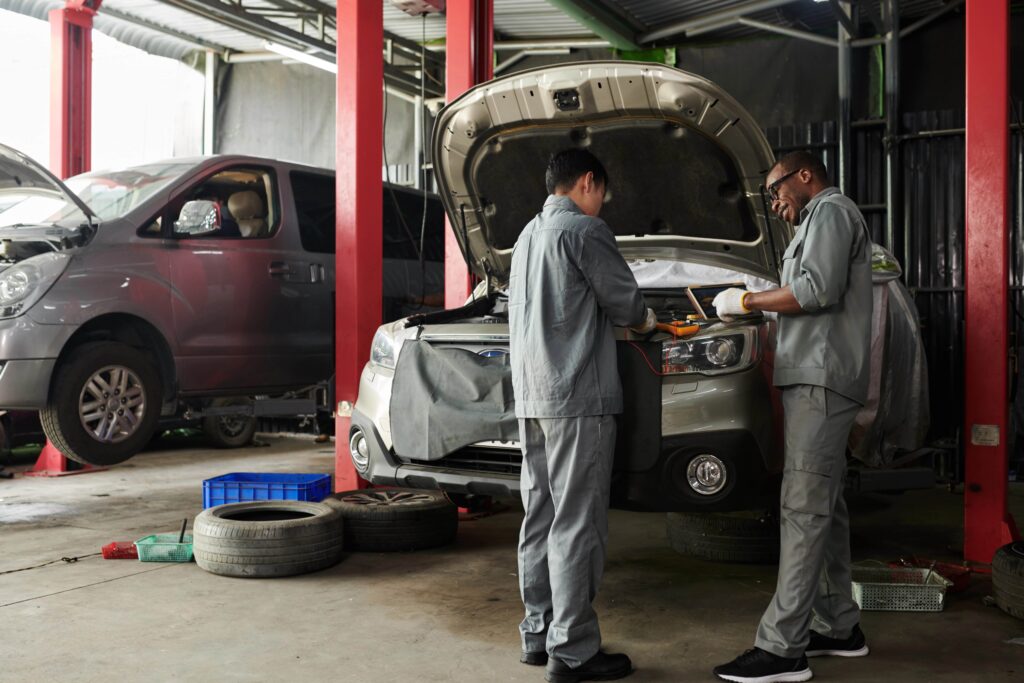Car Tune-Ups in Austin: What Every Driver Should Know

Have you ever considered whether your car needs a tune-up? Regular maintenance, including tune-ups, is vital for keeping your vehicle running smoothly and efficiently. It helps catch minor problems before they develop into expensive repairs.
In this post, we’ll explore why getting a tune-up is important, what it entails, and how it benefits you as a driver. Whether you’re a seasoned mechanic or someone who knows very little about cars, understanding these basics can save you time, money, and stress.
Why Regular Tune-Ups Matter
Think of a car tune-up as a health checkup for your vehicle. Just like humans need regular checkups to stay healthy, your car needs tune-ups to ensure everything is functioning correctly. Skipping tune-ups can lead to bigger issues down the line, which might require costly fixes.
Boost Engine Performance
During a tune-up, technicians inspect and adjust various components such as spark plugs, air filters, and belts. These adjustments ensure that your engine runs at peak efficiency, improving fuel economy and reducing wear and tear on critical parts. A well-tuned engine translates to smoother rides and longer-lasting components.
Enhance Safety
It’s not just about performance; tune-ups also play a role in keeping you safe on the road. Mechanics thoroughly examine essential systems like brakes, tires, and lights during a tune-up. Identifying and fixing small issues early prevents them from becoming dangerous hazards later on. You’ll feel more secure knowing your car is in top condition.
What Happens During a Tune-Up?
So, what exactly happens when your car goes in for a tune-up? Let’s break it down step by step:
- Spark Plug Inspection & Replacement: Worn-out spark plugs can negatively impact your car’s performance and fuel efficiency. Replacing them ensures smoother ignition and better mileage.
- Filter Changes: Air, oil, and fuel filters should be changed regularly to maintain cleanliness within your vehicle. Clean filters mean cleaner airflow and less strain on your engine.
- Fluid Checks: Fresh engine oil, brake fluid, coolant, and transmission fluid keep all moving parts lubricated and operating smoothly. A mechanic will top off or replace any low fluids during your visit.
- Diagnostic Testing: Modern vehicles come equipped with sensors that alert mechanics to potential problems. Diagnostic tests help identify hidden issues before they become major concerns.
These procedures collectively contribute to making your car safer, more reliable, and easier to drive.
How Your Driving Experience Changes Post-Tune-Up
There are certain indicators that suggest your car might need attention between tune-ups. Recognizing these signs early allows you to act swiftly and avoid unnecessary expenses.
Signs Before a Tune-Up:
- Rough Idling: Does your car shake or idle roughly when stopped? This could indicate trouble with the engine that requires immediate attention.
- Poor Fuel Economy: Are you filling up more frequently than usual? Decreased fuel efficiency is another red flag pointing towards the need for a tune-up.
- Engine Misfires: If your engine sputters or hesitates while accelerating, it’s likely due to improper combustion inside the cylinders.
Once your car undergoes a professional tune-up, expect noticeable changes in its behavior:
Improved After a Tune-Up:
- Smarter Acceleration: Your car should now respond promptly to throttle inputs without hesitation.
- Better MPG: Optimized engines burn less fuel per mile driven, resulting in lower refueling costs over time.
- Cleaner Emissions: Properly maintained cars emit fewer pollutants into the atmosphere, making them eco-friendly options.
Keeping up with routine maintenance ensures longevity and reliability for your automobile.
Self-Care Tips for In-Between Visits
Even though regular tune-ups are necessary, there are still things you can do yourself to preserve your car’s condition between visits. Pay close attention to unusual sounds, vibrations, dashboard warnings, or declining functionality. Acting quickly upon noticing such symptoms prevents further deterioration.
Some additional actions include:
- Checking tire pressure weekly
- Ensuring proper battery connections
- Monitoring brake pad thickness
- Regularly cleaning exterior surfaces
By staying proactive, you protect both your wallet and peace of mind.
Choose the Right Mechanic for Your Tune-Up Needs
Investing in periodic tune-ups safeguards your investment while promoting safe travel. They enhance fuel consumption rates, minimize risks of sudden failures, and increase the lifespan of your automobile. Addressing minor faults ahead of time saves thousands later on.
Don’t wait until something breaks—schedule regular appointments with trusted professionals like those at Lamb’s Tire. Our team utilizes advanced technology alongside years of expertise to provide thorough inspections and repairs tailored specifically for your vehicle.
Small Cap Curly Tacks,Small Cap Curly Tack,Pointed Top Small Cap Coil Nail,Small Cap Rolling Nail
Hebei Xinduan Hardware Manufacturing Co. , Ltd. , https://www.xinduanhardware.com